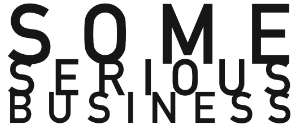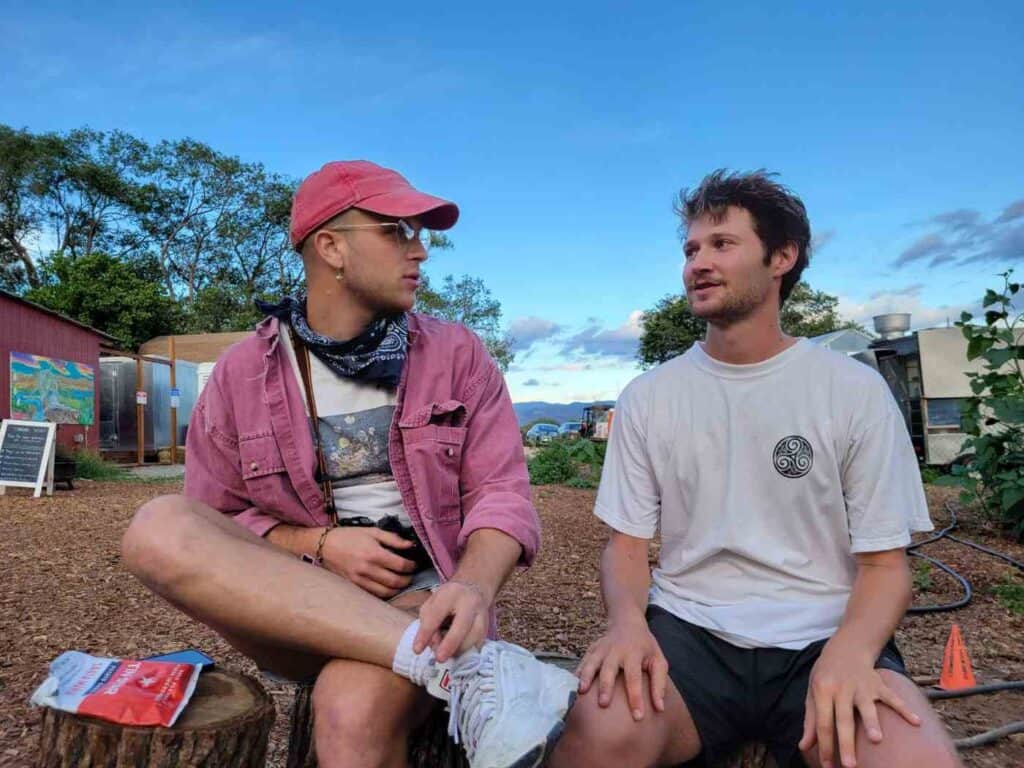Chauncey Foster Answers All #Fifty Questions
Chauncey Foster is Creative Director and Executive Director of we.grow.eco. From teaching workshops transforming textile waste to paper and journal making to monthly Abstract Picnic art nights in Santa Fe, we.grow.eco facilitates events designed to alter the habits in action and thought that perpetuate an unhealthy, unbalanced, unsustainable relationship with our environment.
For its first project, We Walk, Chauncey walked 4,326 miles across the country from Virginia Beach starting March 2021 to San Francisco, arriving January 8th, 2022. Along the way, he and co-founder Noah Mertz coordinated community clean-up events in dozens of cities in collaboration with local organizations where they picked up trash together and documented their haul using the One Piece A Day app; conducted food walks making burritos and delivering them to hungry folks and those experiencing houselessness; organized arts and sustainability festivals; and engaged in conversations with anyone and everyone they encountered along the way—seeking mutual understanding and on-the-ground exposure to a wider slice of the nation. 37,365 pieces of litter were collected. A second We Walk event from Canada to Mexico is planned for 2025.
1. What event or factor in your life has been the most pivotal in your decision to become an artist?
When a group of friends said they liked the haikus I wrote.
2. What artist do you consider most influential to your ongoing development as an artist?
Nina Simone, Pharrell Williams, Muhammad Ali, Tyler the Creator, Moses Sumney
3. What has been the most significant challenge you’ve faced that you overcame to continue your art practice?
I still don’t feel like an artist. It seems like a loaded term that doesn’t have much meaning to me. It took me a while to be content with this opinion.
4. Describe your ideal workspace.
A cabin in the woods with as much space to create as possible and a definite timeline to work.
5. What one sentence do you hope describes how your art practice will be recorded in history, and why?
My art practice will either be the most important paradigmatic shift in the 21st century or it will be completely forgotten.
6. In thinking of the lulls and gaps or lost places in your practice over the years, who or what has re-energized you?
It’s all a process. If the inspiration is not there, I move on with something else. Anything can spark an idea to create, from a color to a word, to traveling, to an ad.
7. What project of yours do you personally consider your most satisfying, and why – regardless of external support or accolades?
Fig Loot because it was the first written and recorded short film I had done with others and it is the foundation of my expression.
8. What are habitual internal fears and bogeymen that come up for you around making art – excluding universal concerns of time, space, money, inadequacy, and recognition?
Maybe sharing my artwork with unbiased strangers?
9. Who of all the artists who have ever lived would you most love to share your work with? And why?
Children. Because they usually get it.
10. If you could travel in time, within what era or milieu would you most like to have an artist residency? And why?
10,031 CTE because there’s probably some cool stuff happening then.
11. What is your current guiding motivation to work and/or express yourself?
Deadlines
12. Who or what would you most like to collaborate with?
Judas, Post Christ’s Death or Robin Williams.
13. Do you have a relationship with the distant future – in other words, are you making artwork that bears a message or impact for coming generations?
Yes
14. What role does your genetic or cultural background play in your practice?
N/A
15. What surprises you most about what you are doing right now in your practice? If the nine-year-old you could see you right now, what do you think they would think?
That people find what I am doing interesting. My 9-year-old self would probably smile and want to play with my older self and learn as much as possible and have a lot of questions.
16. What do you worry you will never be able to express?
I don’t worry about this.
17. What emotion as an artist makes you most uncomfortable and why?
Anxiety, because it is draining.
18. Can you recall your first memory of bliss in self-expression?
Climbing Oak Trees as a toddler.
19. Who has been your greatest mentor, living or dead, real or imaginary?
My mother, Sharon, Leishman, Pharrel Williams, My Grandfather, Science, Gi Gurdieff
20. Do you have a relationship with an animal in your life that influences your art process?
No
21. What unchangeable fact has been most frustrating to you as an artist?
Capital drives the industry.
22. How deeply do you feel your self-expression is impacted by the field in which you work – its mores, standards, culture, legacies – and how so?
Selling art, seeking validation, the ego, one-upmanship, individualism, European-centric driven values. I am impacted by them through social pressure.
23. How would you describe your ideal relationship with other artist colleagues?
Observant.
24. What do you feel are the greatest or most tenacious barriers to creating art over an entire lifetime?
I don’t think there are barriers. I will be able to do all that I aspire to do if I am not killed. So actually, time and death and human contentment are the barriers.
25. Do your dark nights of the soul tend to be constructive or destructive to your self-expression?
Constructive.
26. Is destruction a positive phenomenon for you?
Destruction is a neutral phenomenon to me.
27. What is your artistic relationship to loss? Either personal loss, or lost works of art, or other kinds of loss?
Loss is a tragedy. Losing material things or parts of yourself or relationships. It’s all very sad and hard. The worst is when you lose something you can never get back. It is also important in the scheme of general relativity to lose. So loss is a tragedy I accept and coexist with because of its seeming inevitability.
28. When does Joy tend to visit you?
When I play the piano or practice giving.
29. Who or what are you speaking to or with in your current work? Who or what would you like to speak with in your art in the future?
I am speaking to all those who feel that there is something very off about the normative standards and ethical principles we have chosen to live by in our current society.
30. If you have one goal for change in your artistic field, what would it be?
More detailed, less abstract.
31. If you could amplify a specific sense, which would it be? If you could minimize a specific sense, which would you choose?
Amplify smell, minimize sight.
32. How have your years in artmaking affected or influenced your sense of self?
It has made me more expressive.
33. What do you suspect is your most powerful artistic blessing? Or blessing in general?
The ability to learn. Being born in the U.S.
34. Have you ever had a physical illness, event, or impediment that has changed how you make or approach artmaking? And how?
No.
35. If you could create a new public institution for your field, what would its mission be?
An organization that incentivizes humans to think more critically about our relationship with the environment by facilitating interactive science, art, and community programs built upon the philosophy that small, unified actions lead to habitual, social, and systemic change.
36. Who or what do you feel is most invisible to others in your practice?
My race.
37. How do you feel most often misunderstood or misperceived, either as an artist or in your work itself?
That this is just the beginning. I have a lot of space for growth and development. My vision is in reach and impossible.
38. How important is it to you that others connect and understand and appreciate your work?
Not important at all. My art is beyond me. People will get it when they need to or overlook it and find another way.
39. What is your relationship to criticism?
I’m open to it, as long as it is reciprocal.
40. What is your relationship to praise?
I don’t like it.
41. Is there a seasonal rhythm to your practice? How so and why?
I haven’t been able to identify it.
42. How would you describe the prevailing norms in your field – are you impacted by them? How or how not?
Selling art, seeking validation, the ego, one-upmanship, individualism, European-centric driven values. I am impacted by them through social pressure.
43. What is your relationship to your audience, real or imaginary?
My relationship with my imaginary audience is strong and faith-based. My relationship with my real audience is cautious and observant.
44. What makes you most likely to shut down or go into dormancy as an artist?
If I were to ever receive everything I wanted as an artist I would most likely not make art anymore.
45. Do you have a particular skill or knack of which you are most secretly proud? Something you feel you can do that few others can, no matter how small?
I can work with people I dislike or don’t agree with.
46. Which would you prefer: to be a rogue artistic outsider or to fit within a community of similarly-minded creators?
Depends on what the cultural norms are.
47. Describe the greatest gift someone has given to you that invigorated your artistic expression?
Genuine interest and appreciation.
48. Are you more interested in the universal or the individual? How important is it to you whether you express yourself as a unique person, or rather add your voice to a collective conversation?
I am more interested in the relationship between the universal and the individual. My voice is added no matter what, both in action or inaction.
49. If you could be anything besides an artist in human form, what would you like to be?
I am mostly not an artist. I probably would be a scientist or an AI technician or a programs director for a non-profit.
50. What would be the most thrilling moment or situation in timespace to find your art being enjoyed?
In political fulfillments most likely.

